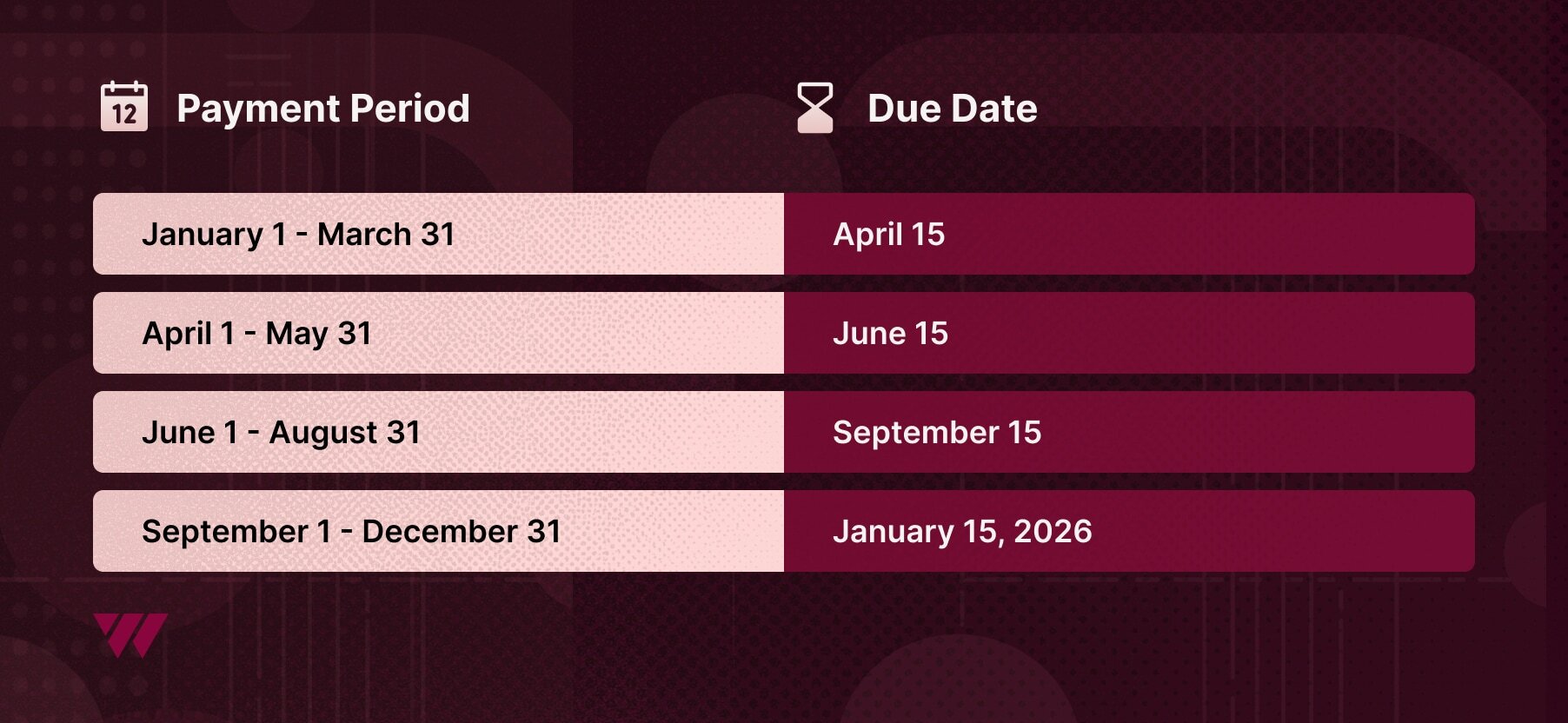Some workers pay their taxes once a year in April. Must be nice.
Contractors like us know that April is tax time… but so is June, September and January. That’s because estimated taxes are due quarterly. As a contractor, you likely do not have any taxes withheld when you receive payments from your clients. (If this is all news to you and you’re freaking out, now is a good time to read our story about how to file your taxes as a freelancer.)
Let’s get back to the questions at hand: when are estimated taxes due? And how do you file them?
When estimated taxes are due in 2025
This is a good time to open up your calendar app of choice and enter the following dates for September and January. Here’s when the IRS says to send in your estimated taxes:

The year is more than half over, so if you never paid your Q1 or Q2 estimated taxes, it’s advisable to do so if you want to avoid penalties. Keep in mind there could be penalties even if you file on time, should you under-estimate your quarterly income.
Preparing to file your estimated taxes
In addition to knowing the estimated taxes due dates, you should also be prepared to make the payments. While you could set aside some of your income (perhaps even in a separate account), you could also use Wingspan’s Tax Withholding feature, which automatically deducts funds from each payment based on an estimated tax rate you’ve chosen, and stores those funds safely in a separate account. When you’re ready to pay your estimated taxes, it’s an easy one-click payment to the IRS.
Where to file your estimated taxes
Fidelity has an excellent guide on how to file your taxes, which include these three ways:
- electronically filing via the IRS’ Free File initiative
- filing the old fashioned way via snail mail
- using free/paid tax software to file
All that said, when you hire a tax professional, they often handle the tough work of filling out your forms and filing on your behalf. It cuts down on errors you might make when you’re doing the filing yourself. Plus, it ensures that you’re on top of all the yearly tax code changes which could entitle you to keeping more of your hard earned dollars. You know who does pay attention to those tax code changes? Tax nerds like Jonathan Medows, CPA who helpfully outlined many of the tax implications for contractors of the One Big Beautiful Bill Act passed in 2025. That’s why it helps to have an expert like a Certified Public Accountant or Enrolled Agent (EA) on your side.
Now that you know when taxes are due and how to file them, it’s up to you (or a tax pro) to do the rest. Make things easier on yourself by using Wingspan, which supports your business with invoicing, bookkeeping, and benefits solutions, so you can focus on doing the work you love – learn more.
Because reading one article about taxes is never enough:
How to Do Your Taxes as a Freelancer
How to Figure Out if You Should Take a Home Office Tax Deduction
How to Get Organized for Tax Season
*This information is not intended to provide, and should not be relied on for, tax or legal advice. Wingspan is not a bank. Banking services are provided by Lead Bank, Member FDIC. Deposits are FDIC-insured through Lead Bank, Member FDIC. The Wingspan Visa® Debit Card is issued by Lead Bank, Member FDIC, pursuant to a license from Visa USA Inc.Your funds are FDIC insured up to $250,000 through Lead Bank.; Member FDIC.


